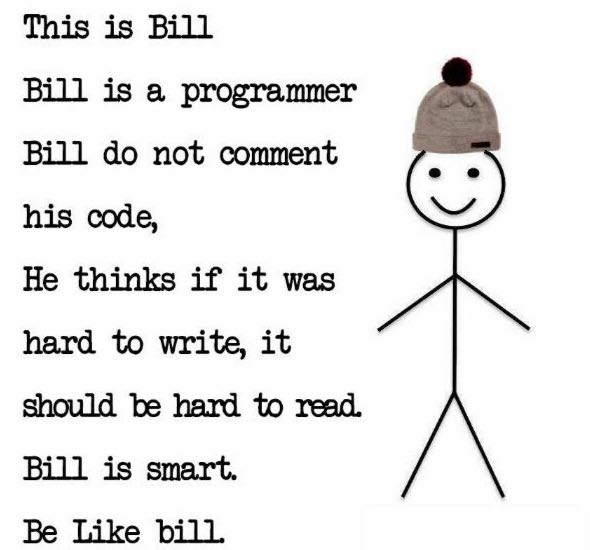this post was submitted on 26 Nov 2023
712 points (89.3% liked)
Programmer Humor
23368 readers
1332 users here now
Welcome to Programmer Humor!
This is a place where you can post jokes, memes, humor, etc. related to programming!
For sharing awful code theres also Programming Horror.
Rules
- Keep content in english
- No advertisements
- Posts must be related to programming or programmer topics
founded 2 years ago
MODERATORS
you are viewing a single comment's thread
view the rest of the comments
view the rest of the comments

Comments don't describe the code. They describe the decision to use this business logic.
If you stick to good engineering practices, like small methods/functions, decoupling, and having testable code, you don't often need many comments to show what your code does. I always recommend a method signature, though, because you can save a few seconds by just saying that a block of code does, rather than me needing to read exactly how you turned one dict into another dict...
I agree for inline code comments, like, "# Save the sprocket", right above the line that saves the sprocket. Does this include documentation? Because when I see a
prepareForSavefunction that references 10 other functions and I just want to know, "Is this mutating and how is it preparing for save and when should I call it?", having the author spend 15 seconds telling me is less time consuming than me spending 5 minutes reading code to find out. Anyone who has read API docs has benefited from documentation.No, commenting a function should be commonplace, if not only so that your IDE/editor can use the documentation when the signature is found elsewhere in your code.
Within a function, though, basically means that something gnarly is happening that wouldn't be obvious, or that the function is doing more than it (probably) should.